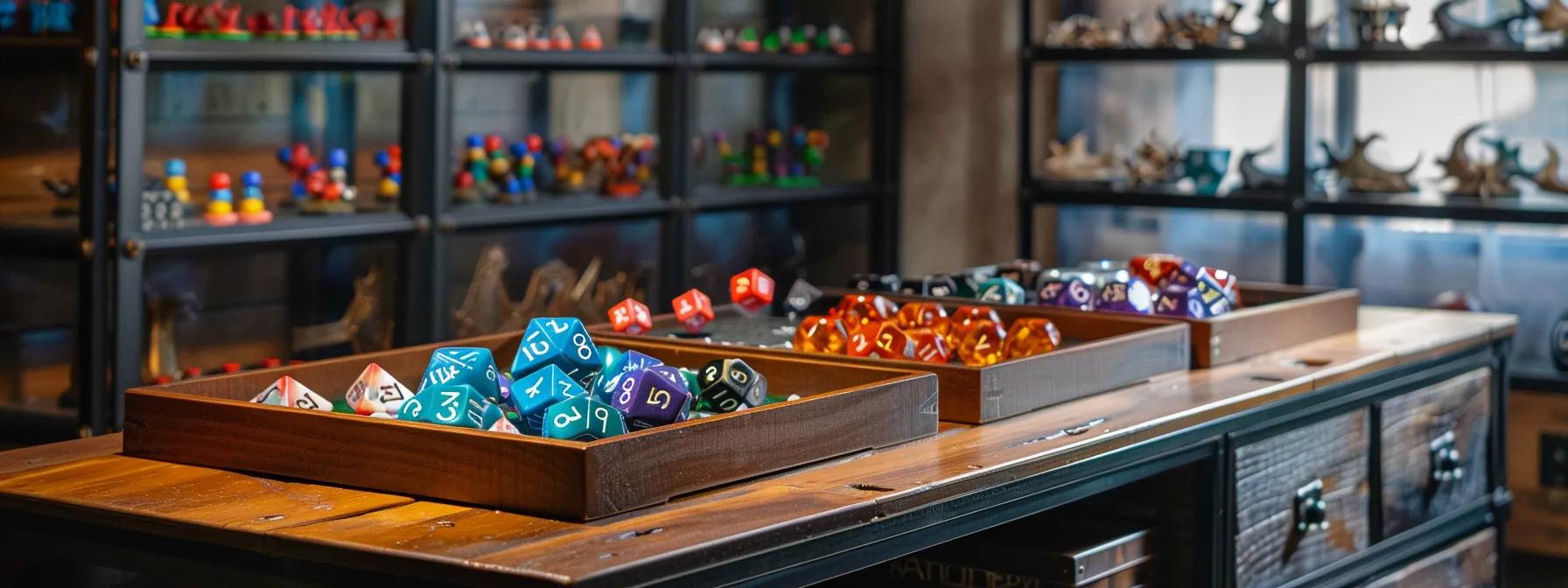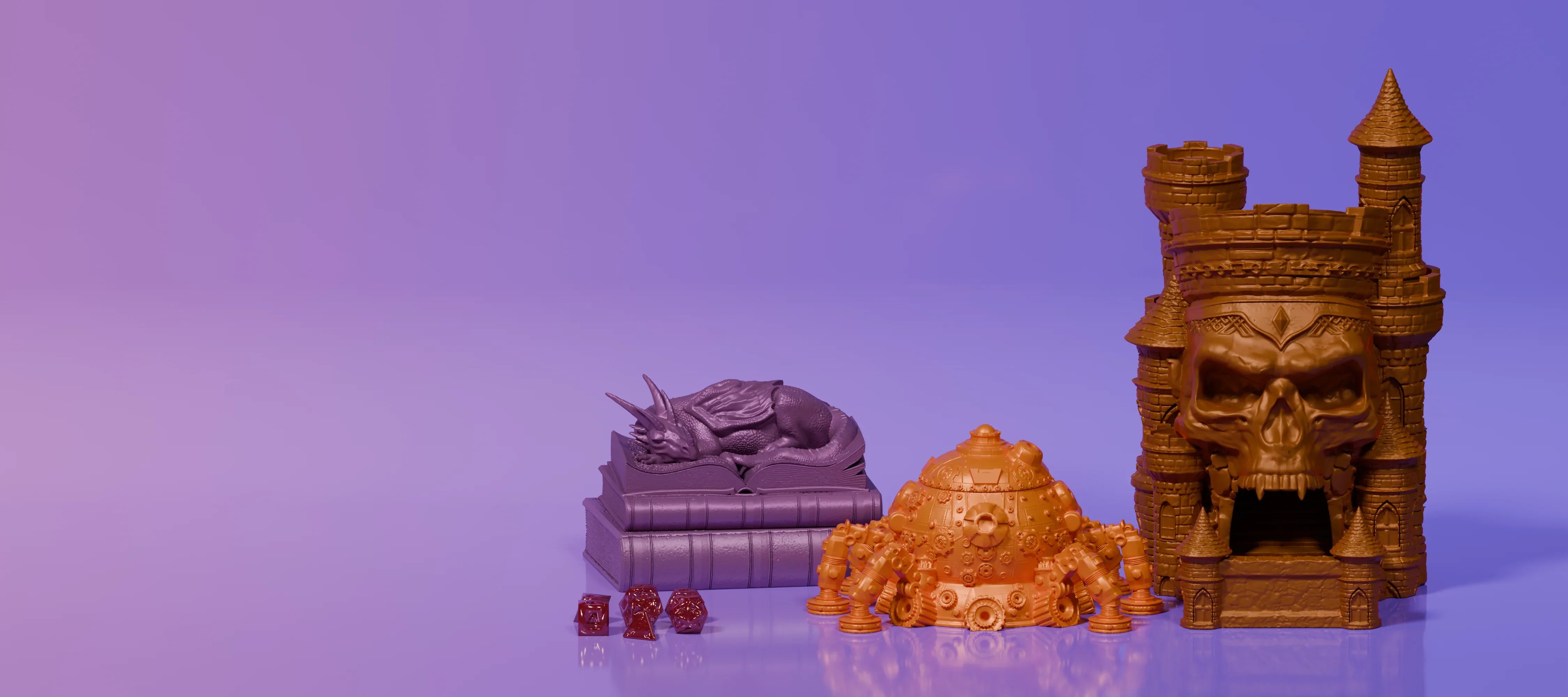
Compare Player Aids vs. Standard Sheets for Board Games
In your board game sessions, you've probably asked yourself: are those fancy player aids actually helpful, or do the standard sheets do the job just fine?
Whether you’re deep into strategy games, building your next D&D campaign checklist, or just here for the life benefits of playing D&D with some help from D&D Beyond and a good TTRPG safety tool kit, we’re breaking it all down.
We’ll walk through the differences, pros and cons, and when it makes sense to upgrade. And yeah, we’ll talk about how Tao of Dice techniques and TTRPG accessories bring extra clarity - especially in games heavy on game mechanics iconography, or complex, tabletop formats.
Understanding Core Differences: Player Aids Versus Standard Sheets

Standard game sheets come with the game. They’re the barebones - rules, score sheets, sometimes trackers. Reliable, but basic. They preserve the designer’s original structure but rarely adapt to your playgroup’s needs.
Player aids? These are your cheat sheets, quick-reference cards, inserts, apps - often community-made or third-party like those from Fabletop or Tao of Dice. They speed up play, reduce table arguments, and often look way cooler. They’re also super customizable, from a D&D campaign checklist to themed safety tools.
Try This: Next time you play, bring one player aid (even a homemade one) and see if it cuts down on rulebook flips.
Defining Standard Game Sheets and Their Purpose
Standard sheets keep everyone on the same page, literally. They’re official, consistent, and low-maintenance. For simple games or purist groups, they do the trick.
But here’s the rub: they don’t scale well. Complex games or homebrew-heavy sessions demand more. That’s where extras like D&D Beyond or printable campaign trackers really help. And if you’re already using a TTRPG safety tool kit, you’re halfway into custom territory anyway.
Level-Up Tip: If you’re sticking with standard sheets, consider laminating them or storing extras in a quality game binder from your local shop TTRPG accessories vendor.
Characterizing the Variety of Board Game Player Aids
Player aids come in all shapes, custom cards, organizers, apps, tokens. They’re built to keep the pace quick and your brain on the game instead of buried in a rulebook.. Think of them as the improv cues for your tabletop session.
From D&D Beyond overlays to printed spell trackers, these tools remove the mental clutter. Bonus: they’re great for people with different learning styles. Visual? Tactile? Audio? There’s an aid for that.
Comparing Information Accessibility and Ease of Use
This one’s simple: player aids are built to be fast and readable. Standard sheets? Not so much.
Dense rulebooks, small print, and unclear layouts are common with standard sheets. A well-made player aid uses icons, color-coding, and hierarchy. Even better? Digital apps that offer real-time updates. Tools like D&D Beyond help minimize mid-game waffling.
Bous Insight: Reducing rulebook checks by even 10% means more spotlight time for your players, and that’s worth the upgrade.
Material Durability and Long-Term Usability Factors
Standard sheets can get torn, spilled on, or lost. Laminated cards, digital trackers, or storage-enhancing inserts? Way more durable. Especially helpful if you’re gaming in cafés or conventions.
Premium organizers and high-traffic aids last longer and pay for themselves over time. Some even integrate safety tools and campaign planners.
Planning for the long haul? Consider combining sturdy inserts with digital backups for your high-use games
Production Origin: Official Components Versus Third-Party Creations
Official sheets are safe bets, always accurate, always rule-compliant. But third-party player aids? That’s where creativity lives.
Indie designers and companies like Fabletop craft tools that elevate function and flavor. These tools often cater to niche needs or design improvements not tackled by the original publisher.
Looking for unique tools? Try third-party options for your next one-shot. They’re a great way to test enhancements without committing long-term.
Analyzing the Impact on Gameplay: Which Enhances Your Session More?

This really depends on how your group plays. Player aids streamline rules, reduce downtime, and often increase immersion. Standard sheets keep things official and consistent.
Pro Tip: Use a Session Zero to test both options. Let your group decide which feels better in play.
How Player Aids Can Streamline Rules and Reduce Downtime
Quick-reference cards cut down on rules lawyering. Apps give fast lookups. These tools speed things up and keep the table engaged.
Especially in games with lots of modifiers or timing triggers, player aids help keep the energy up.
The Role of Standard Sheets in Maintaining Game Designer Intent
For groups that like things RAW (Rules As Written), standard sheets are your go-to. They keep the structure intact and avoid confusion over third-party interpretations.
That said, they can feel restrictive or slow in groups that prioritize flow or Rule of Cool moments.
Table Culture Tip: If designer intent matters to your table, talk about it upfront, especially before mixing in outside tools.
Contribution of Different Aids to Game Immersion and Theme
Flipping through a rulebook mid-scene is pretty common - but it can still throw off the mood, especially during a tense or emotional moment. Themed tokens, ambient apps, and tactile aids help you stay in character and keep the flow going without interruption.
Immersion tools can also double as visual storytelling cues, custom markers, dice trays, and more.
Immersion Boost: Try a themed initiative tracker or condition ring set next session and see how much smoother combat flows.
Evaluating Setup Speed and Table Footprint
If you’ve ever tried setting up in a board game café or a small apartment, you know space matters. Player aids that double as organizers or modular kits can seriously cut down setup time and clutter.
Simple wins here; color-coded kits, labeled trays, even custom inserts built from a Kickstarter stretch goal can make a big difference.
Compact organizers and modular inserts help especially in tight spaces, like game cafés or shared tables.
Quick Tip: Use labeled inserts or color-coded player kits to cut down setup time and focus on play.
Which Option Better Supports New or Infrequent Players
New players tend to get overwhelmed fast. Dense sheets? Not helpful. Clear, visual aids? Way better.
Player aids act like a safety net, guiding newer folks through the flow without requiring tons of upfront reading. They help new players feel confident faster, giving them just enough direction to participate without second-guessing every turn.
First-Timer Friendly: Print or build a new-player starter kit. Include key rules, a turn-order tracker, and role-specific reminders. One great example is a simple sheet that highlights a character class’s main abilities for combat; like an opening combo, healing spells, and big damage options. It’s the kind of tool that lets someone step into their first session and feel ready to play- not just learn.
Showcasing Top-Tier Player Aids for Popular Board Games

Let’s highlight some of the top options across categories.
Must-Have Reference Cards for Complex Rule Sets
These cards condense important info into bite-sized chunks. Think turn phases, ability keywords, or phase triggers. Clear icons + concise text = faster decisions.
Card Tip: Laminate for repeat use, and color-code per player type or role.
Innovative Organizers and Inserts That Improve Game Flow
Custom inserts reduce setup time and keep everything where it belongs. Some even double as play surfaces.
Storage Tip: Choose organizers that match the box size and components exactly. It saves space and travel headaches.
Custom Tokens and Markers That Augment Game State Clarity
Custom tokens help players track states like health, abilities, and cooldowns. They’re intuitive and theme-friendly.
Creative Hack: Print your own tokens using transparent sticker paper and metal coins or poker chips.
Digital Applications as Modern Player Assistance Tools
Apps like D&D Beyond or Board Game Companion help with scoring, reminders, and even visual timers. Bonus: they’re searchable.
Digital Reminder: Always have a backup battery or charging cable on game night.
Criteria for Identifying the Best Player Aids for Board Games
Here’s what to look for:
- Functionality: Does it actually help you play better?
- Durability: Will it survive regular play?
- Theme Fit: Does it feel like part of the game?
- Ease of Use: Can a first-timer figure it out?
- Cost: Worth it for your table’s needs?
Comparison Shortcut: Create a player aid “wish list” based on the games you play most. Use it to guide future buys.
Deciding Which Is Superior: Tailoring the Choice to Your Gaming Style
It’s not really about “better”, it’s about what works for your group. Fast-paced games? Go for aids. Story-heavy games? Maybe standard sheets keep you more grounded.
Talk to your group, test options, and adapt based on feedback. That’s what makes game night smoother.
Final Tip: Keep a feedback log after your next few sessions. What worked? What dragged? Use that to refine your kit.
Final Thoughts
Whether you go with the built-in sheets or trick out your table with custom player aids, the best choice is the one that keeps your game moving and your players engaged. Try new tools, experiment, and keep the focus where it should be, on shared stories and good laughs.
See you at the table.



